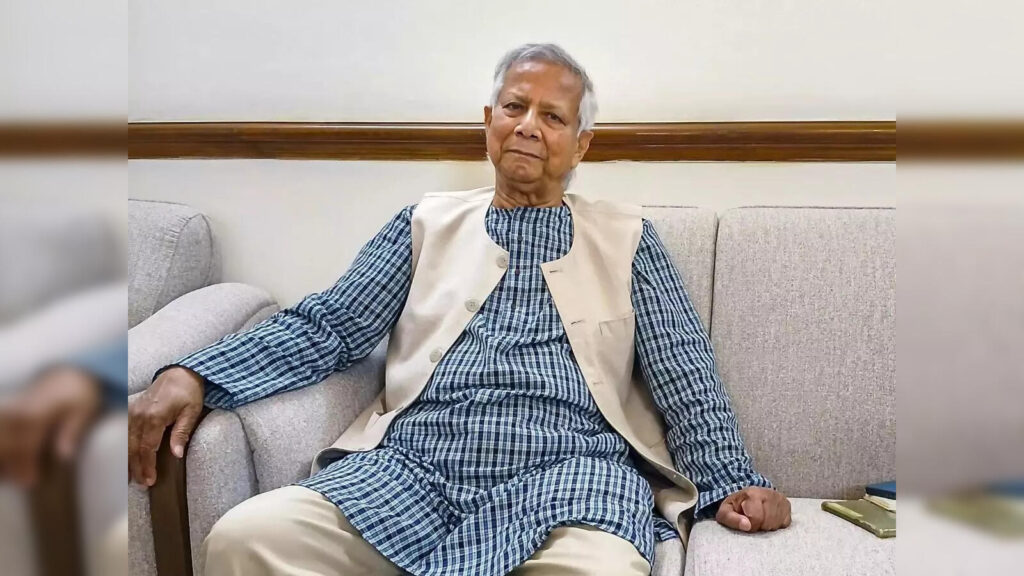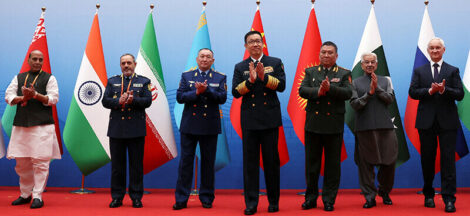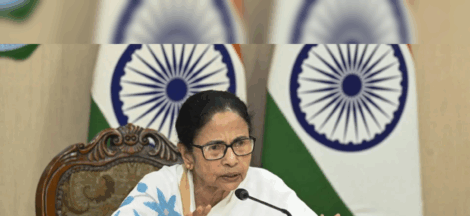Exactly six months have passed since the installation of the interim government in Bangladesh on August 8, headed by Dr. Mohammad Yunus, three days after the ouster of the Awami League government led by former Prime Minister Sheikh Hasina. Hasina, daughter of the founder of the present Bangladesh, the late Sheikh Mujibur Rahman, fled to India on August 5, 2024, and since then, the relations between India and Bangladesh have been deteriorating.
The last high-level meeting held by the Indian foreign secretary in Dhaka on December 9 to ease tensions in the bilateral relations between the two neighbours, talked of some positive steps. However, after two months of that visit, the situation has further worsened, instead of improving. The main issue is the Bangladesh interim government’s demand for the extradition of Sheikh Hasina from India and disallowing the ousted prime minister of the country to continue her ‘political activities’ from the Indian soil against the present Bangladesh interim government.
As regards extradition demand by the Yunus government, the latest position is that India got the official request in December last year and acknowledged it immediately. But no reply has been given as of now. The Indian government, on the other hand, has allowed Sheikh Hasina to address her Awami League followers through video interaction. The latest address on February 5, on the eve of the six months of what she says is an “illegal” interim government, led to retaliatory actions by the present Yunus-led regime’s supporters by burning down the iconic and historic residence of the late Sheikh Mujibur Rahman, as well as of Sheikh Hasina, called Dhanmondi. The interim government administration did not take any preventive action; rather the official of the Yunus office said that the address of Hasina was provocative and that led to the angry reaction from student activists.
Right now, it seems that the Indian government is backing Hasina in her bid to oust the interim government by organising her party cadres within the country and outside, and preparing them to face the election whenever it is held. Possibly, the Indian government policy makers, after waiting for a few months assessing the internal situation, have come to the conclusion that there will be no improvement in bilateral relations, unless Hasina is deported, which India cannot do. Further, internally in Bangladesh, the positioning of the contending parties is showing a decisive shift in favour of the extremist and communal elements against the forces which are pitching for fair elections with the participation of Awami League. The anti-India sentiment has spread more among the people. South Block is not hoping for any positive change in India’s favour in the near future under the present regime.
Let us look at the ground situation in Bangladesh now. The interim government is vertically split, with the BNP taking a more moderate position, pitching for early national elections before the end of this year, possibly by October, with the participation of Awami League as a political party, while excluding those AL workers and leaders against whom cases are there in the courts and with the police for participating in killings of the anti-discrimination movement participants. Chairperson of the BNP, Khaleda Zia, is presently in Britain for medical treatment. She is expected to be back latest by April this year, and from then on, BNP will be launching massive movement for holding elections by the end of this year. Khaleda Zia’s son Tarique Rahman is the all powerful leader of the BNP. He has been addressing meetings through video links from his London residence, and telling the BNP supporters to be ready for launching the agitation after the arrival of Begum Zia, with her health restored, in Dhaka. The BNP party units throughout Bangladesh are waiting for the arrival of their leader.
On the other hand, the student bodies are rushing with their decision to found their new political party before the arrival of Khaleda Zia, so that the BNP does not get the initial advantage in their planning in the present political turmoil in Bangladesh. They are planning to be ready with their party and programme to confront BNP by the time the Bengali New Year, which falls on April 14, arrives. First of Baisakh, the Bengali New Year is an auspicious day and all political parties celebrate this day through cultural programmes. This year, Awami League’s cultural wing also will be trying to hold their programmes, but the student bodies may not allow them to stage programmes publicly.
Bangladesh political analysts say that come April/May, the Bangladesh politics will be in ferment, as the two contending camps, the BNP and the student bodies’ new party, will be facing each other in the streets, and it is expected to be a no-holds-barred confrontation. The American embassy in Dhaka is still waiting for directions from Washington, as the new president Donald Trump is too busy with his other agendas. South Asia is not a priority now. China is very actively courting both the BNP and the student leaders. India has to observe the coming confrontation with some anxiety as both factions, as also Jamaat-e-Islami, have strong anti-India sentiments.
For the Indian officials, the latest worry is the closeness of the Bangladeshi army and the intelligence agencies with their counterparts of Pakistan. The latest visit of the Pakistan ISI chief to Dhaka and the exchange of army delegations between the two countries has alarmed India, as the security of the country is faced with a real threat following the latest collaboration of Pakistan and Bangladesh defence and intelligence. South Bloc has to redraw its security strategy.
In this grim geopolitical context, the coming summit later this month between the U.S. President Donald Trump and Indian Prime Minister Narendra Modi has assumed special importance. PM Modi has to discuss the Bangladesh issue with the U.S. President for ensuring security to the Hindu minorities in the country, as also to help Bangladesh in organizing fair and transparent elections. The U.S. can also play a formidable role. India has no other option but to look for a government more friendly than the present interim government in Bangladesh after the elections. (IPA Service)




 PhonePe Exits Account Aggregation Business
PhonePe Exits Account Aggregation Business 